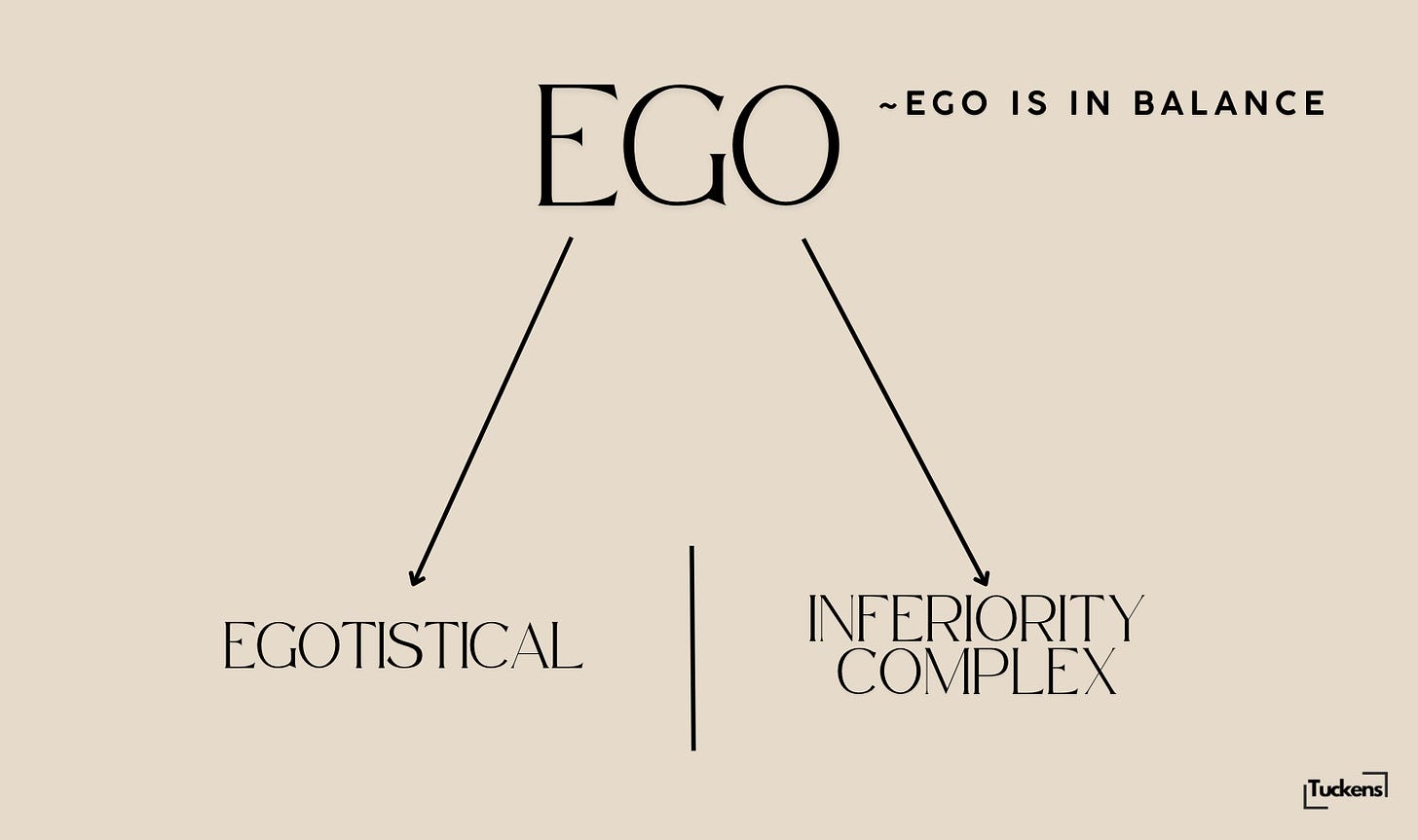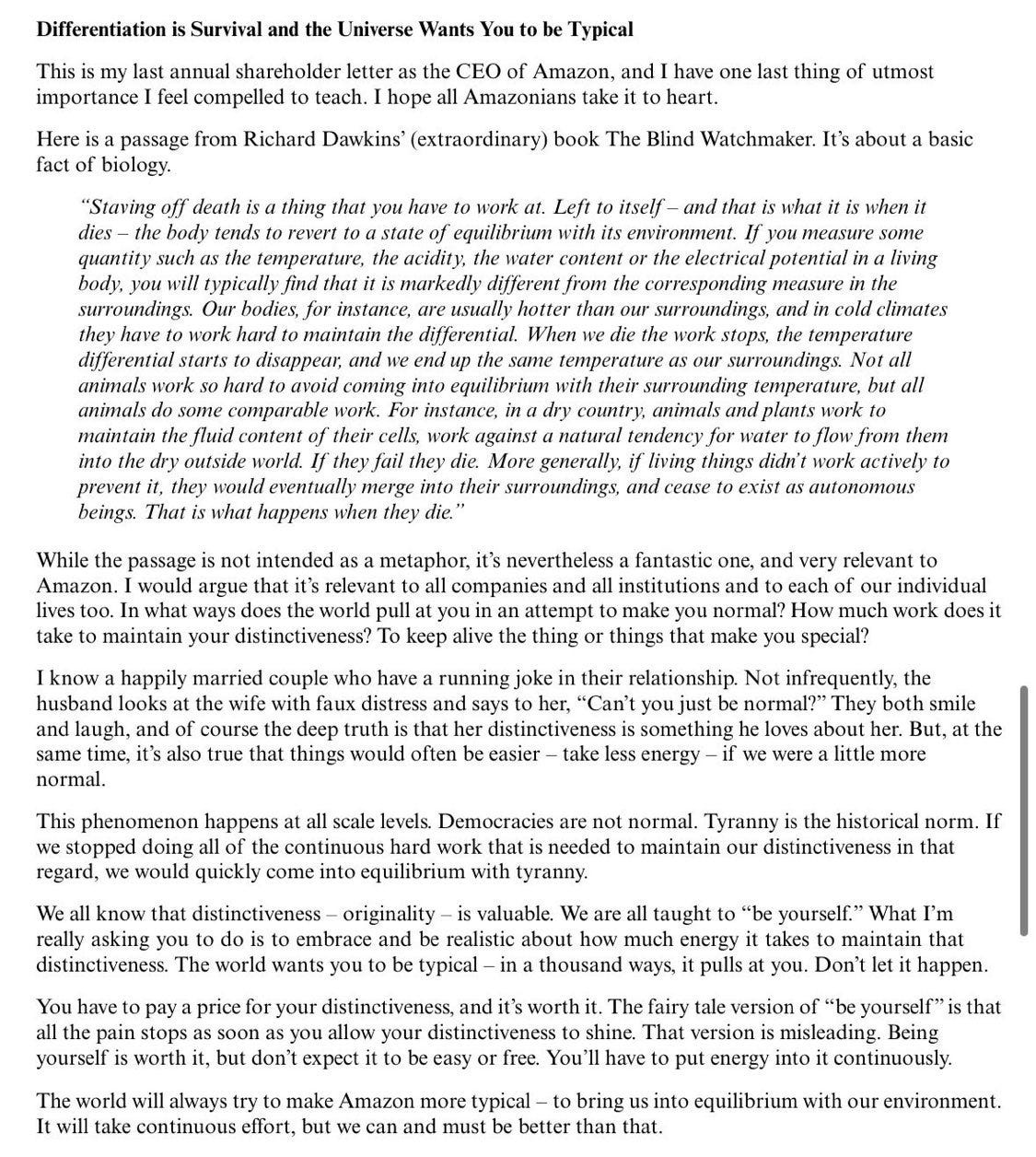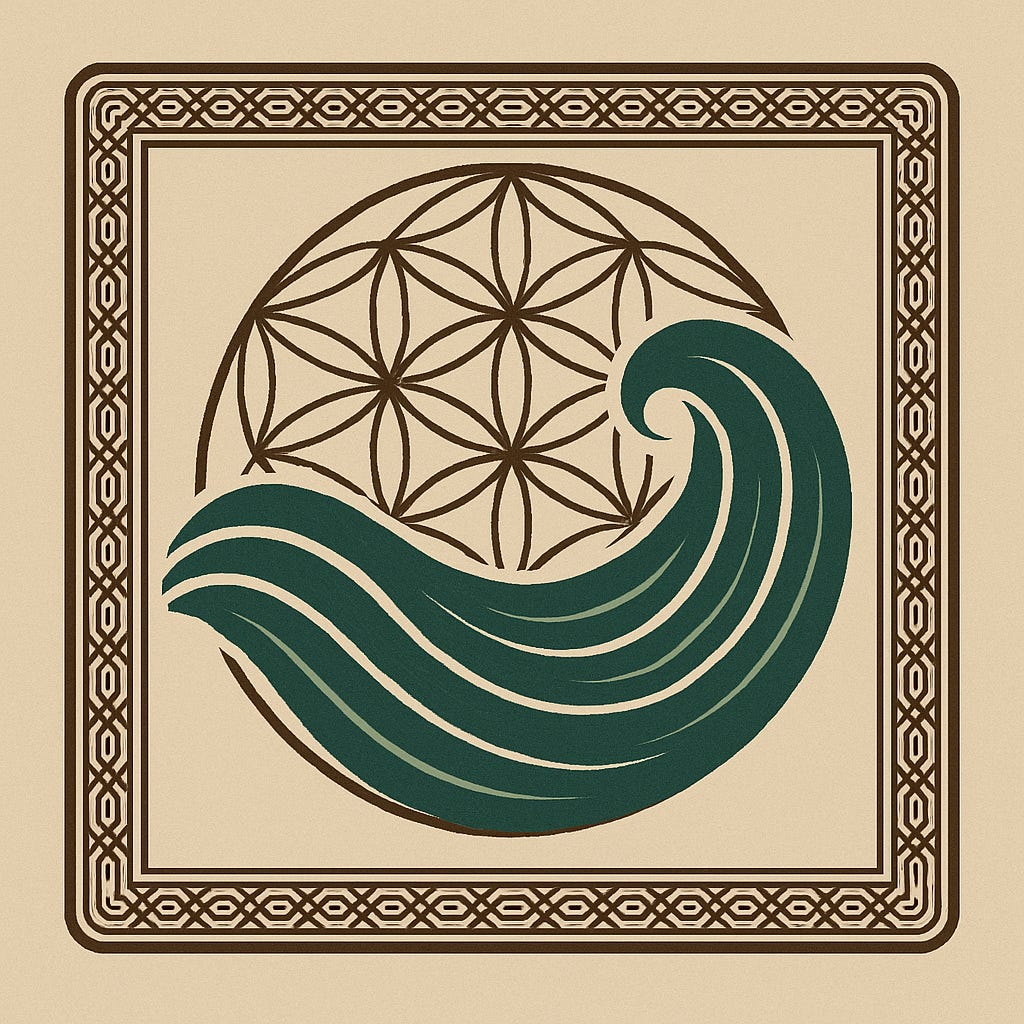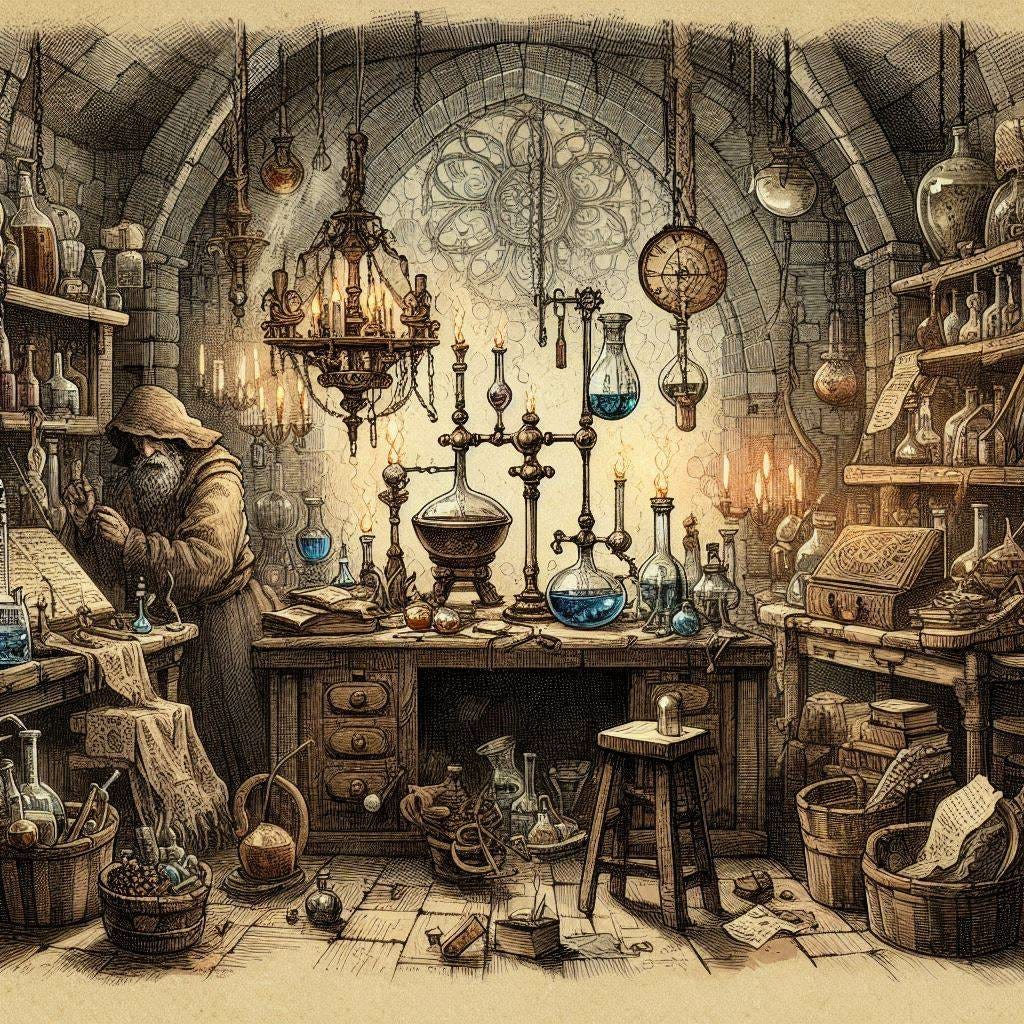The Ego Advantage
You can use the ego to your advantage when you understand these principles
This essay takes inspiration from Carl Jung and offers a thesis on how the Ego can be an advantage.
The ego has gotten some bad rep from assumptions that compare the ego to hubris and fail to express the benefits that can arise from understanding and incorporating the ego into your psyche. The mainstream belief is that the ego is not a tool but an obstacle to be overcome and then discarded; that having an ego is a bad thing and you should do anything you can to disintegrate your ego and become… become what… a part of the masses indistinguishable from any other person? Or the idea is to tame your ego and never let it show its face in public lest you cross the invisible social line.
Instead, let us focus on the ego advantage and how it can be turned into a tool. But before we do that, we are going to steelman the point of view that the ego is an obstacle. Then, I will offer a counterpoint that will leave you with a new understanding of your ego and why it should not be ignored but fostered and integrated into your “self.”
Ego as an Obstacle
The argument for the ego as an obstacle goes like this: the ego stands as a relentless and pervasive barrier between individuals and their fullest experience of life. It thrives on separation, convincing us that we are distinct from others, that our desires and fears define us, and that our worth is measured by external validation. By clinging to this false self, we entangle ourselves in suffering by constantly chasing recognition, fearing rejection, and mistaking fleeting emotions for absolute truth.
The ego resists reality, distorting it to fit its fragile narrative, leading to unnecessary conflict, insecurity, and isolation. It turns life into a competition rather than a shared experience, making genuine connection impossible and ensuring that fulfillment remains just out of reach.
Beyond personal suffering, the ego stifles growth by prioritizing self-preservation over self-improvement. It fears change, rejects criticism, and clings to certainty, keeping us trapped in rigid patterns of thought and behavior. When challenged, it reacts with defensiveness rather than openness, preventing us from learning, adapting, and evolving.
The Greats teach us the obstacles to wisdom as being a recalcitrant attitude to change, a closed mind, and a righteous judgment towards others which are all born from the ego’s need to protect itself. They teach that only by minimizing its influence can individuals embrace reality as it is, rather than as they wish it to be, freeing themselves from the limitations imposed by their own distorted self-perception.
But as we will discover, it is impossible to see reality for what it is; we will always see the world through distorted perceptions. It is a part of being and something that Donald Hoffman calls the FBT (fitness beats truth) theorem.
"What we’re seeing is not the world as it is, but a construction—an illusion, in a sense—that’s useful for our survival. The idea is that evolution gave us perceptions that are like a user interface, not a truthful depiction of reality." - Donald Hoffman
The Ego strikes a similar cord where it puts up a persona to mask the depth of what’s underneath. Sociologically, this works because without a mask, it would become increasingly difficult to socially define people in a manner that would allow us to interact with them beneficially.
Ego as a Driving Force
Instead, I propose the ego as not an obstacle but a necessary force that drives ambition, resilience, and the pursuit of greatness. It forms the foundation of identity, giving individuals a sense of direction and the confidence to carve their own path in the world. Without the ego, there would be no striving, no will to overcome adversity, and no hunger to push beyond limitations. It is the fire that fuels mastery, the unwavering belief that allows someone to stand against the tide of doubt and opposition. While the ego may distort reality at times, it also serves as the internal architect of a person’s vision, shaping their goals and compelling them to bring those goals into existence despite resistance. To attempt to erase the ego is to strip individuals of the very force that allows them to assert their place in the world and take ownership of their destiny.
Beyond personal growth, the ego is a tool that, when properly harnessed, enables people to contribute meaningfully to society. A strong, disciplined ego transforms insecurity into self-reliance, hesitation into action, and uncertainty into conviction. It is not the enemy of connection but the foundation upon which authentic relationships are built; only by knowing oneself can one engage fully with others. The problem is not the ego itself but the failure to control it. Those who master their ego use it as a guide rather than a tyrant, allowing it to drive them forward without falling into arrogance or self-delusion. The goal is not to eliminate the ego but to refine it, shaping it into an instrument of harmonic purpose.
Let us take a look at Carl Jung’s theory of consciousness and what he has to say about the ego.
Jung puts the ego near the center of the psyche illustrating its importance and the consequential impact it has on one’s “self”. The ego is an integral tool in the process of individuation that is defined as:
“The psychological process through which an indivual develops a distinct and integrated sense of self, seperate from others”
Now you may be asking why individuation is important, especially in regard to the impact it has on the greater collective. Individuation has an impact on the greater collective because people who are not in tune with themselves are worse off than those who are. The collective is hurt by this lack of development. Individuation helps people to think for themselves, without this you get dystopian worlds like what was experienced during World War II and how many minds Hitler was able to seize and bring under his twisted ideology.
Thus we discover the process of indivuation as vital to fostering a healthy world.
Carl Jung believed that the only real danger was man himself. He argued that humanity’s greatest threat was not external forces but the unconscious aspects of the human psyche—our own shadow, unchecked impulses, and the potential for self-destruction. Jung saw the failure to integrate the unconscious mind as the root of chaos, both individually and collectively. He warned that without self-awareness, people project their inner darkness onto the world, leading to conflict, oppression, and destruction.
We are in individual bodies while also being a part of a greater collective; both physically through society and metaphysically through the spiritual world. When we cultivate our egos, it is not mere selfishness, as many assume, but rather a process through which our own growth contributes to the advancement of the world. The law is simple; I is connected to the size of WE; when I grows so does WE by the sum of the part plus an amplification factor. The whole is then greater than the sum of its parts, amplified by the change in any one ego.
After studying the consequences of this law we are much more likely to take the development of our ego seriously. Because the enlightenment of the world can only go as far as each individual is willing to take themselves, the development is also not arbitrary. We can see that a world filled with adults that have the spiritual aptitude of a child is a much lower frequency world than one with spiritual aptitudes more in line with Christ's Consciousness. The two worlds are far from the same and their difference begins with the changes that happen in the minds and hearts of each individual.
Tools for Developing the Ego
First of all, I think it is always best to go to the source and start with Carl Jung to understand how he thought about the ego and its role in individuation and collective consciousness. His theory involves the integration of conscious and subconscious aspects of the psyche to achieve self-realization and wholeness. Through integration, you uncover your unique identity, life purpose, and personal potential while reconciling internal conflicts that will liberate you from the chains that once held you.
You Can Develop Your Ego Through a Craft, Ritual, and Community
Rituals serve to provide someone with a commitment that they get to tend to daily. Rituals serve as a mechanism to living an intentional life and keeping the mind steady. The ritual yields meaning as it becomes a constant in the ever-changing circumstances of one’s life. When the mind and body become fragmented, the daily ritual works to reunify. When one has strayed from his path, the ritual serves as a compass to guide him back. It becomes an instrument to harmonize the body, mind, and soul into the eternal present.
The craftsman has a relationship with the material he works with. It is something he can understand, touch, feel, and smell. His focus and commitment to his craft nurture his individual growth and teach him about the world. It becomes a microcosm that connects him to the macrocosm. It grounds him and gives him control over the outcome. It becomes a part of him and so he feels an intrinsic connection. It is not in his imagination but is real and gives his life meaning.
By involving oneself in a community one is able to build an identity and relationship with the people around him. The world becomes a place of friendly faces instead of a world full of strangers. One learns to take on responsibility within the community and align his values to others. Purpose is found in making the community stronger, healthier, and more vibrant. Everyone is working toward the same goal, and progress is found in the meaning derived when living for others. Nations are not built for the sake of one individual but for the unification and progress of all individuals.
Any step you take towards fostering a craft or ritual in your life is a step toward a better future for yourself and your community. A community packed with healthy egos is a community that will stand the test of time. The community that is filled with narcissism and individualism will surely devolve into disorder and chaos. So when you take up a craft, or ritual or get involved in your community, you not only improve your own life but inevitably become a net positive and a blessing to others.
Developing the Ego
This one seems redundant, but as you have learned, the self goes much deeper than the ego. Yes, the ego has an impact on the self, but you can also develop other parts of yourself, like your shadow, which will have an impact on your ego. By placing intention on other parts of the self, you become more harmonized, and so the ego becomes balanced. If you only focus on the eg,o it will overpower other parts of yoursel, and you may find yourself being known as an egotistical scumbag. Take the other route, where you never develop the ego because you naively believe it to be an obstacle to growt,h and you will find yourself with an inferiority complex.
The creation of a healthy ego is a dance between self-forgetfulness and self-actualization. It is a life-long journey that will need constant attention and the right care for it to blossom into an ego fit for individuation. The psychological pull of the masses to conform will confront you every day of your life. There is a tendency in nature to break down and dissolve into everything else, the inertial effect of this law is working against your process of individuation and this is why the work is never complete.
Finally, let me leave you with a message from Jeff Bezos that will sum up all that I have said in words greater than mine:
The journey towards a unified world starts from within.
Thank you for reading.
May your eyes be bright and full of everlasting laughter.
Or
My X account if you are looking to partake in deep, sensitive, and bright conversations. All it takes is 1 sentence to change your paradigm.
Polymathic Being:
Sound + Creativity:
Jungian Alchemist:











